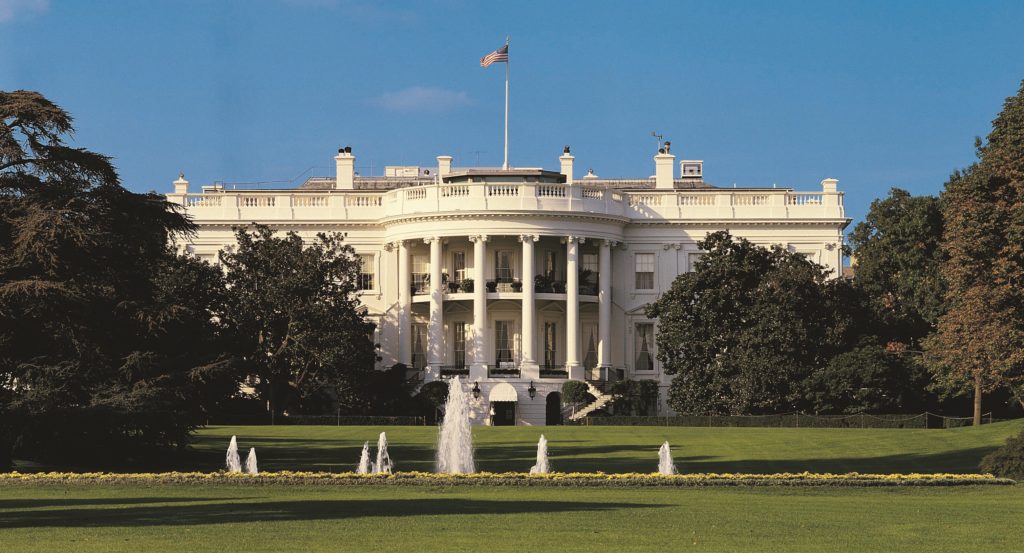February 26, 2021
Biden’s first 30 days in office: what it’s meant for science
Posted by Caitlin Bergstrom
 President Biden campaigned on bringing science back to the center of policy. Knowing this, AGU shared a First 100 Days Memo with the Biden-Harris Transition team, laying out key priorities for climate change, the role of science, and a strong, diverse and inclusive scientific workforce. Now, a little more than a month into the Biden administration, we take a closer look at what progress has – and has not – been made on these priorities.
President Biden campaigned on bringing science back to the center of policy. Knowing this, AGU shared a First 100 Days Memo with the Biden-Harris Transition team, laying out key priorities for climate change, the role of science, and a strong, diverse and inclusive scientific workforce. Now, a little more than a month into the Biden administration, we take a closer look at what progress has – and has not – been made on these priorities.
Climate change
President Biden put climate change front and center in his campaign, touting the importance of acting immediately, incorporating climate change mitigation strategies like clean energy into economic recovery, and having every agency prioritize climate change. Some of the actions the President and his Administration have taken to date include:
- Signing an order calling for the U.S. to rejoin the Paris Climate Agreement, which officially went into effect on 19 February.
- Issuing an executive order ordering all executive departments and agencies to immediately review the Trump administration’s weakening of various environmental rules, including those related to methane emissions, fuel economy standards for vehicles, building and appliance efficiency standards, and air and global warming pollution from power plants.
- Mandating the issuance of guidance for taking climate into account when conducting environmental assessments of federal actions and laying out a process to re-establish a strong social cost of carbon, which will allow agencies to capture the full costs of greenhouse gas emissions as accurately as possible.
- Creating new cabinet positions for National Climate Advisor and Special Presidential Envoy for Climate, to oversee all domestic and international climate issues, respectively, and establishing a National Climate Task Force across 21 agencies and departments.
The Administration has not yet issued any new U.S. commitments for cutting emissions – although those could come later this spring – or started work on any new regulations, which will have to wait until the confirmation of agency heads such as the EPA Administrator.
Elevating the role of science
President Biden shared a desire to put science at the forefront of major policy decisions, especially as his administration is working toward curbing the COVID-19 pandemic. To date, his actions include:
- The elevation of the Director of the White House Office of Science, Technology, and Policy (OSTP), which handles science issues in the Executive Office, to a cabinet level position. Science groups, including AGU, have long advocated for the OSTP Director to be raised to this level, signifying the importance of bringing science solutions to the table.
- The creation of a new role at OSTP – the Deputy Director for Science and Society. Sociologist Alondra Nelson, who will bring expertise in the relation of social inequality to science, was named to the position.
- The release of an executive order on scientific integrity, which creates a task force to review scientific integrity policies across the government and calls on agencies to name chief science officers and to strengthen science advisory groups. This executive order is a complement to H.R. 849, the Scientific Integrity Act, introduced by Rep. Paul Tonko, which requires agencies to develop clear scientific integrity guidelines and aims to reduce political interference in scientific reports and findings.
It will, of course, be critical to see how these actions are carried out and if the mandates of the scientific integrity order lead to stronger evidence-based decision making.
Diversity, equity and inclusion
Biden’s cabinet and administration are the most diverse in history, with half of those nominated identifying as a racial or ethnic minority and half as women. President Biden has extended his commitment to diversity though other executive actions.
- President Biden rescinded a Trump-era executive order that prohibited federal agencies, contractors and grantees from holding diversity trainings.
- Biden also enacted an executive order, “Advancing Racial Equity and Support for Underserved Communities Through the Federal Government”, which aims to increase racial equity across the federal government and create opportunities for historically underserved communities.
- The administration has also made strides towards protecting the LGBTQ+ community. The President issued an executive order on preventing and combatting discrimination on the basis of gender identity or sexual orientation, repealed a ban on transgender people serving openly in the military, and issued a memo aimed at protecting LGBTQ+ people from discrimination around the world through diplomacy, sanctions, and other measures.
AGU affirms these actions as an important step to building a more just world and will be watching to see what specific steps are taken to ensure a more inclusive scientific community in particular.
AGU will continue to follow along with the administration’s actions through the first 100 days and beyond. Want to stay up to date on the latest science policy news? Check out our Action Center for ways to act for science today.

